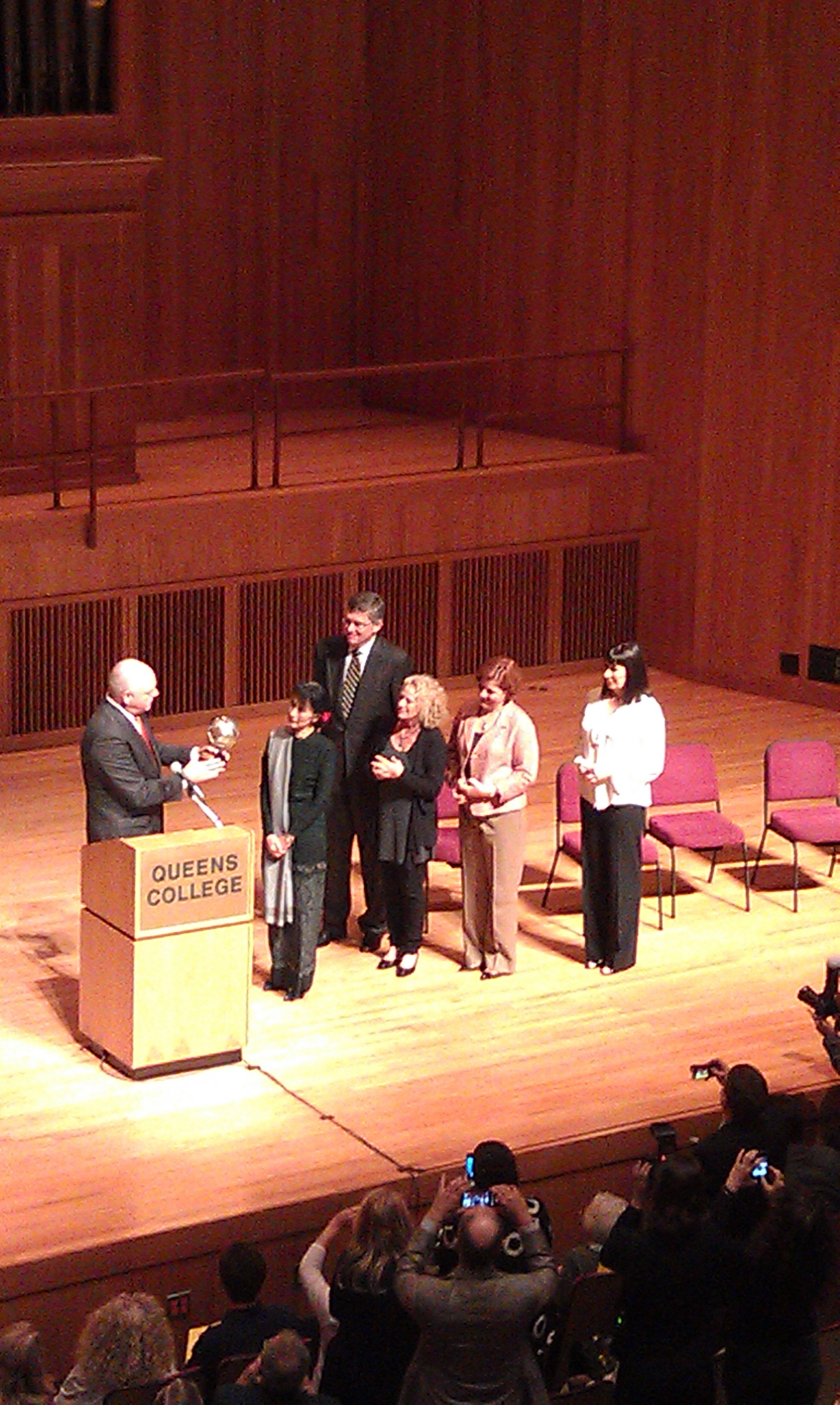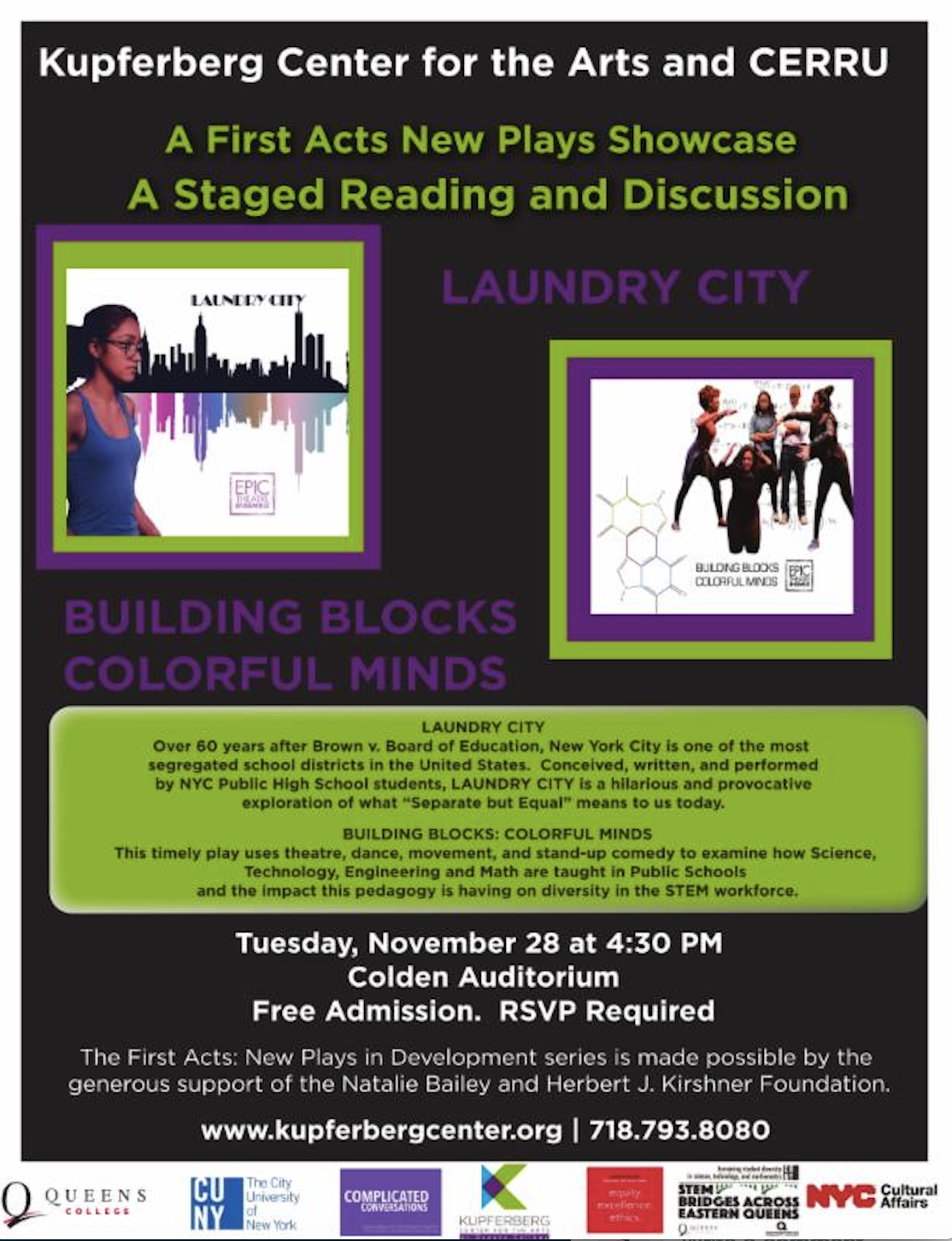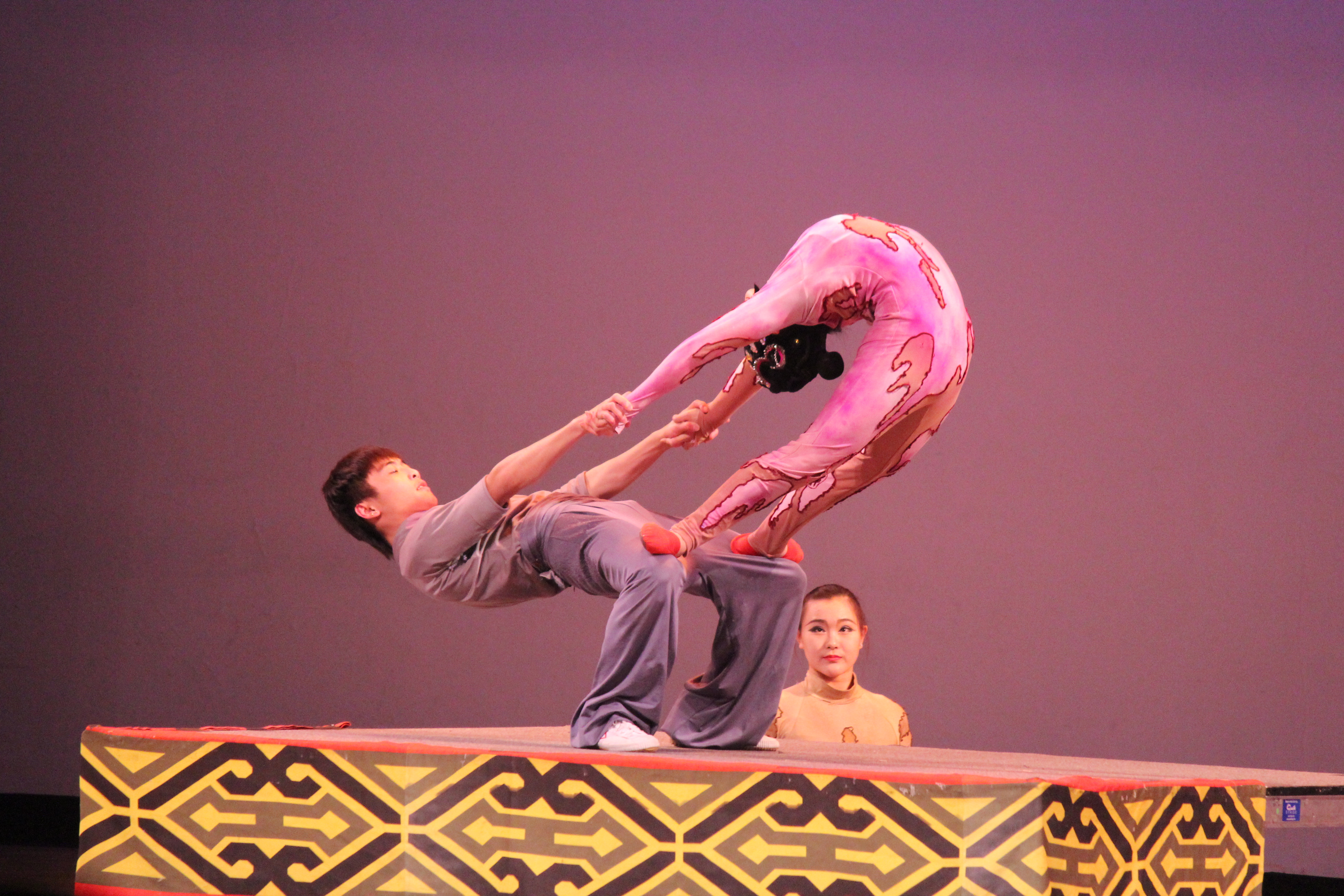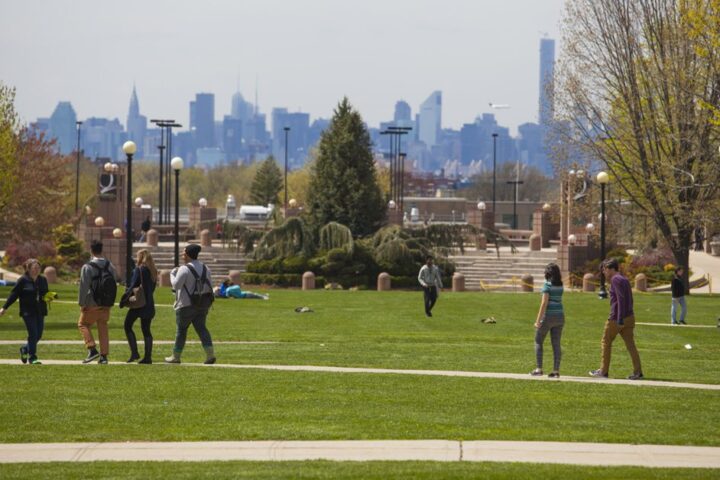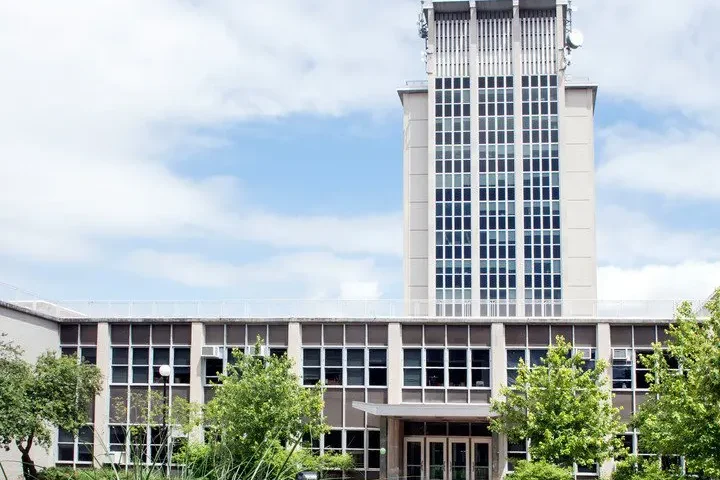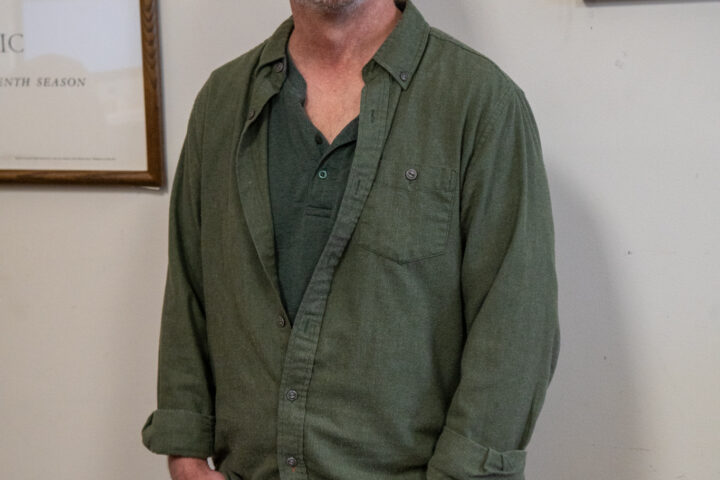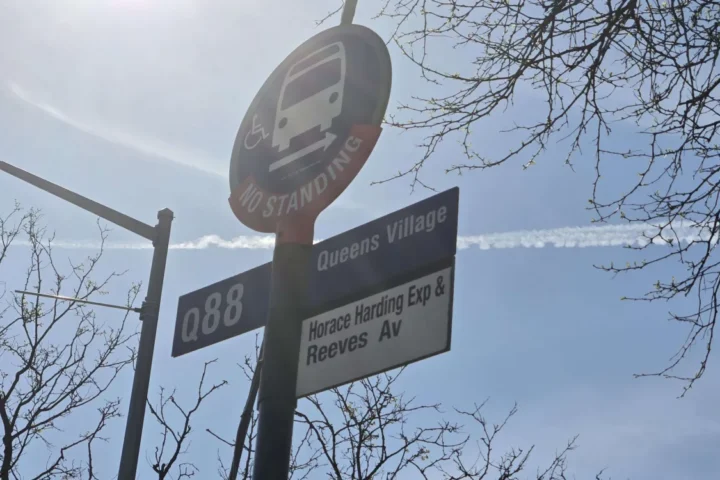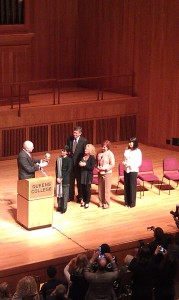
Aung San Suu Kyi accepts the Unisphere trophy from QC Alum Congressman Joseph Crowley, QC President James Muyskens, Grammy award winning singer Carole King, City Council Speaker Christine Quinn and Actress Anjelica Houston.
“If any of you are ever put under house arrest” is not the start of typical advice given to a college student living in the United States. However, when it’s Nobel Peace Prize winner Aung San Suu Kyi on the microphone, you listen.
The packed LeFrak Concert Hall — with a seating capacity of more than 480 — had everyone in the audience sitting at the edge of their seats, taking in every, single word coming out of the frail, demure lady on stage.
Suu Kyi — also a winner of the Congressional Gold Medal awarded by the U.S. Government to her on Sept. 19 — was paying a visit to QC as one of the six stops on her trip across the U.S. The star-studded event organized by the office of Congressman Joseph Crowley, included actress Anjelica Huston, Grammy winning singer, Carole King and NY City Council Speaker Christine Quinn.
Instantly likeable, her grace and powerful personality on full display with each step toward the stage. Suu Kyi walked in to the hall, receiving a standing ovation and walked out in one as well.
Crowley, who moderated the program, reminded the audience that they were “in the presence of greatness.”
“She’s the women’s Mandela,” said attendee Narbada Chhetri, the director of ADHIKAAR, a nonprofit group serving the Nepalese American community in Queens.
Suu Kyi spoke of privilege, honor, rights and a concept she said most American’s undermine: duty; to one’s country, to ones people and to one’s self. She believes generosity is what drives leadership.
“You can’t take democracy for granted,” Suu Kyi said to the audience as she urged them to vote. “What people in the U.S believe to be a basic right — awarded to all citizens — is what the people of Burma dream of.”
Outside the hall, democracy was being put in to practice by protestors exercising their First Amendment rights; their dissatisfaction directed at Suu Kyi.
“After the holocaust, the Kymer Rouge, the Rwanda genocide, we should be past ethnic cleansing,” said 20-year-old Mariam Tanzilla, a Fordham University student protesting the situation of Rohingya Muslims in Burma, who are being killed on the basis of their “religion and the darkness of their skin.”
A former resident of NYC, Suu Kyi observed democracy and the rights it granted people and wanted the same freedoms and rights for her people in Burma. After 15 years under house arrest and five years in and out of state prisons held by the military regime — which renamed the country Myanmar upon its Coup d’etat in 1962 — Suu Kyi now serves as the leader of the military regime’s opposition party: the National League for Democracy.
“I think human beings are born generous, but sometimes we have that generosity squeezed out of us because of the circumstances of our upbringing,” Suu Kyi said.
Inspired by her father and the protests occurring in Burma in the 1980s, Suu Kyi joined the revolution and took on her leadership role.
“I kept going because one, I didn’t know how to stop and two, because I didn’t want to abandon my comrades,” she explained.
“I was really inspired by her story because democracy and voting are really important to me,” said QC student and Student Association senator, Peter Trojic. “I was just in awe of what she had to say, how many people rallied around her and how many she’s inspired.”
After the address in English in Lefrak, Suu Kyi moved on to address a packed Colden Auditorium, which seats more than 2000 people, in Burmese. Outside the hall, a table was covered with gifts and flowers, brought to her by admirers. However, outside the gates of auditorium, leading down to Horace Harding Expressway, stood a small — but loud — group of protestors, calling on Suu Kyi to address the situation of Rohingya Muslims in Burma, which they believe is not getting as much media attention as they think it deserves.
A supporter of Suu Kyi, who left the Burmese portion of the event, walked away from the protestors after making an obscene hand gesture in their direction, while others stopped to take pictures and read the flyers they were handing out.
“There is only one person who can speak out against this situation and do something about it, and that is Aung San Suu Kyi. We want her to end the genocide and implement constitutional change which will save this population,” said Tanzilla
The Rohingya are the second largest population in Burma, but they are not recognized as citizens by the government, nor are they allowed to leave the country or seek political asylum elsewhere.
“When Mrs. Erdogan — the first lady of Turkey — visited the Rohingya Muslims in September, it was televised all over the mainstream media. But as soon as she left — the next day — the military went in to their camps and took away all the aid she had given them; of course that went unreported by any media,” said Tanzilla.
Suu Kyi believes that the only thing that can be done about the situation is by fostering a constructive dialogue between the people in the region who are being killed and the people they are angering. She claims both parties are in the wrong and in order for dialogue to commence, an environment for such a conversation must be created by the two parties.
Additional reporting by Amna Shams.


